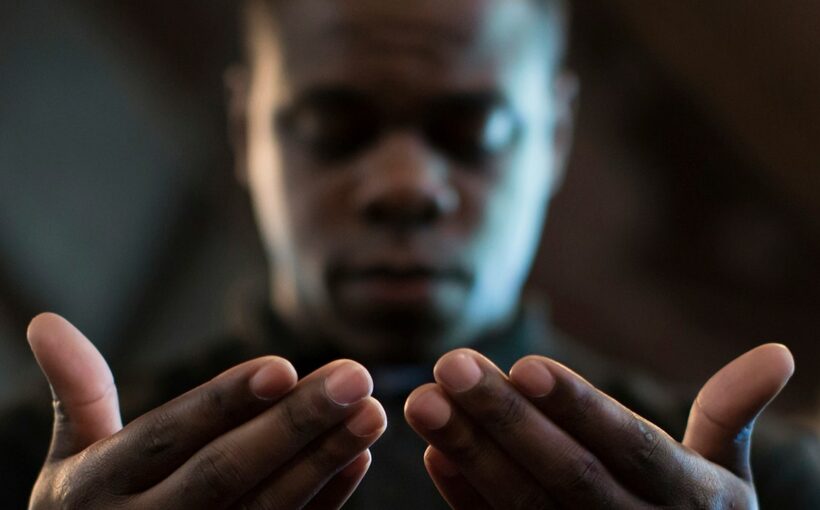America Together – Black History Month – Bishop T.D. Jakes
Uplifting Black Americans to achieve equality has been a long, hard-fought struggle. This fight is marked by momentous wins, such as the full enjoyment of constitutional rights and Blacks ascending to the helm of every facet of society.
However, despite so much progress, challenges of poverty, lack of education, crime, health disparities, and high mortality rates persist.
From the end of slavery to today, the question America has grappled with is, “How do we overcome these challenges?” Instead of looking to Washington for solutions, perhaps we should consider how to amplify the long-standing efforts already underway in our communities.
DR. BEN CARSON: BLACK HISTORY IS AMERICAN HISTORY – AND THIS IS WHY IT’S ALL WORTH CELEBRATING
Since our nation’s founding, Black people have organized, undirected by a central government or figure, to meet the needs of their fellow citizens. We exercise a strong philanthropic spirit, often rooted in faith, through various civil institutions – including the church. These institutions have birthed political leaders and spawned community solutions that underpin our advancement.
The leading Black intellectuals of the Reconstruction era were Booker T. Washington and W.E.B. Du Bois.They presented divergent approaches to tackling problems plaguing the Black community – many of which sadly persist today.
CLICK HERE TO SIGN UP FOR OUR OPINION NEWSLETTER
Washington preached self-improvement and self-reliance as the means of gaining equality and advancement. He promoted basic education, training, employment, and entrepreneurship as the path of upward mobility for Black people.
Du Bois believed that civil and political equality would not be earned over time, but must be wrested from the hands of power. He banked on developing a “Talented Tenth” (a cadre of highly educated leaders including scholars, speakers and clergy) to lead the other 90% of Blacks to “higher civilization.”
While Du Bois’s vision never materialized, we hear echoes of his philosophy in today’s social justice movement, which calls for government and other institutions to cede power and resources to marginalized communities. However, what that approach overlooks is the significance of Black civil society and how it is already at work.
In the 1790s, free Blacks formed the African Free Society – mutual aid societies that supported widows and orphans, the sick, and the unemployed. They also supported the education of their children or arranged apprenticeships for those who could not attend school. These mutual aid societies would later develop into Black churches, when Black religious leaders, tired of being treated as second-class citizens by their White brethren, broke away to form their own denominations.
Historically, the Black church was concerned with social, economic and political issues of the community, along with the spiritual health and character development of churchgoers.
A strong sense of self-reliance permeated churches, leading them to set up programs that addressed the needs emerging around them. According to research conducted on hundreds of urban and rural churches in the 1920s, nearly all (97%) provided community outreach programs, including funds for the poor, feeding programs, free health clinics, recreational activities, and child care programs.
The Black church is just one source of light in the diverse constellation of organizations that form our civil society.
Seventy years later, researchers found that significant majorities of Black churches still engaged in community outreach programs but also expanded them to address emerging issues such as substance abuse prevention. Today, many Black churches, regardless of denomination, view direct services as central to their mission.
Black churches have viewed education as a primary vehicle of upward mobility for the next generation. As such, many provide college scholarships for their members at either the local church or denominational level. From a few hundred dollars to cover books, meals or transportation to larger gifts, many young Blacks have been able to go to college because of a church scholarship, including Du Bois himself. Additionally, church attendance is a strong predictor of whether a Black youngster will escape poverty or stay away from crime.
The Black church is just one source of light in the diverse constellation of organizations that form our civil society. Without its presence, we can only surmise how much worse conditions in the Black community might be.
CLICK HERE TO GET THE FOX NEWS APP
In debating how to advance better outcomes, we should consider that greater government involvement may work against these institutions by removing the cultural and spiritual elements that make them effective or dictating how they operate. Many of these organizations are privately funded, and we do not want government-run programs to crowd out these private efforts.
As we celebrate the accomplishments of Blacks throughout history, let us adopt the urgency of Washington and Du Bois to uplift the Black community. That begins with amplifying the work of the civil society.
CLICK HERE FOR MORE BY PATRICE LEE ONWUKA
Source: Read Full Article

